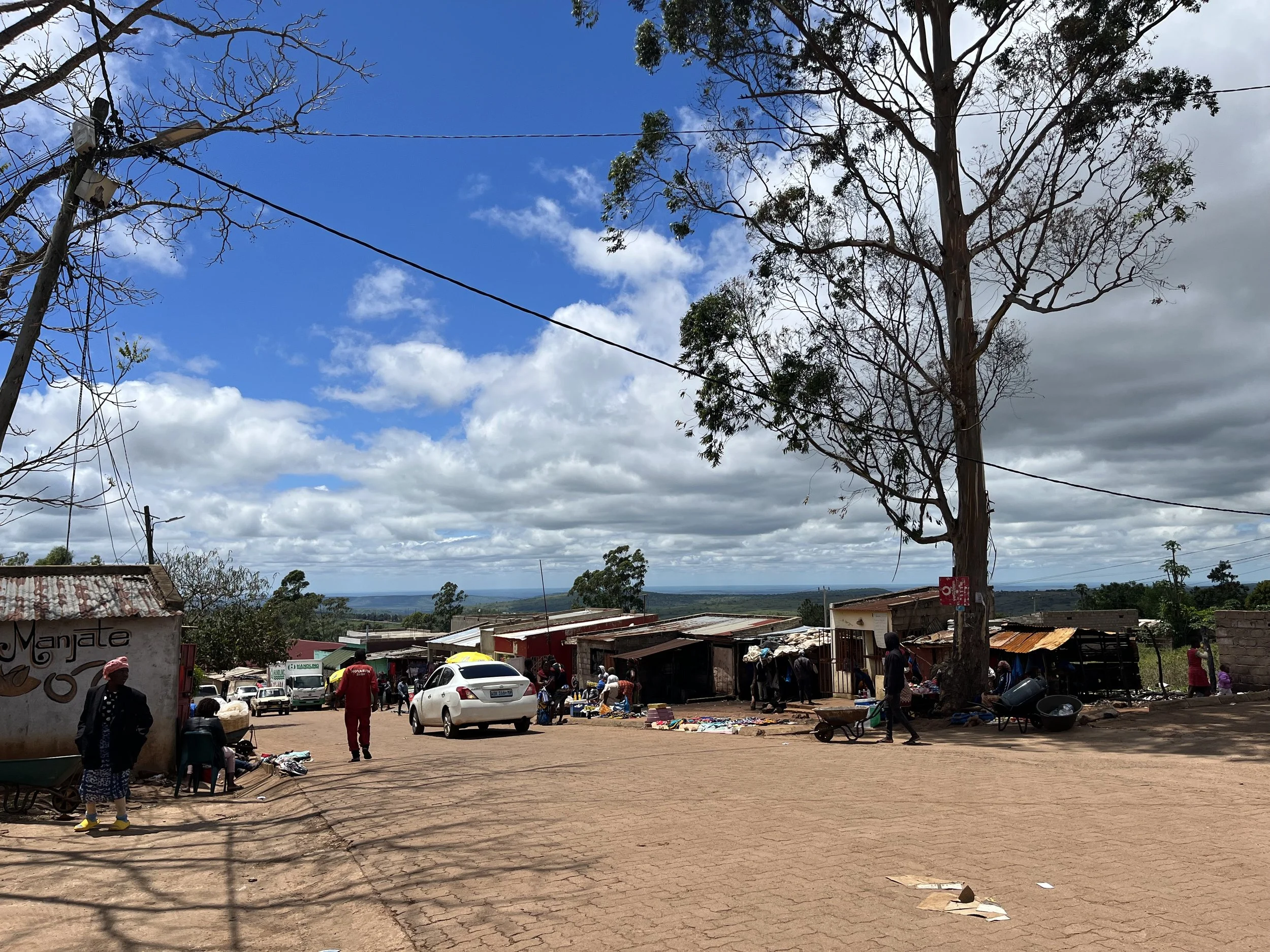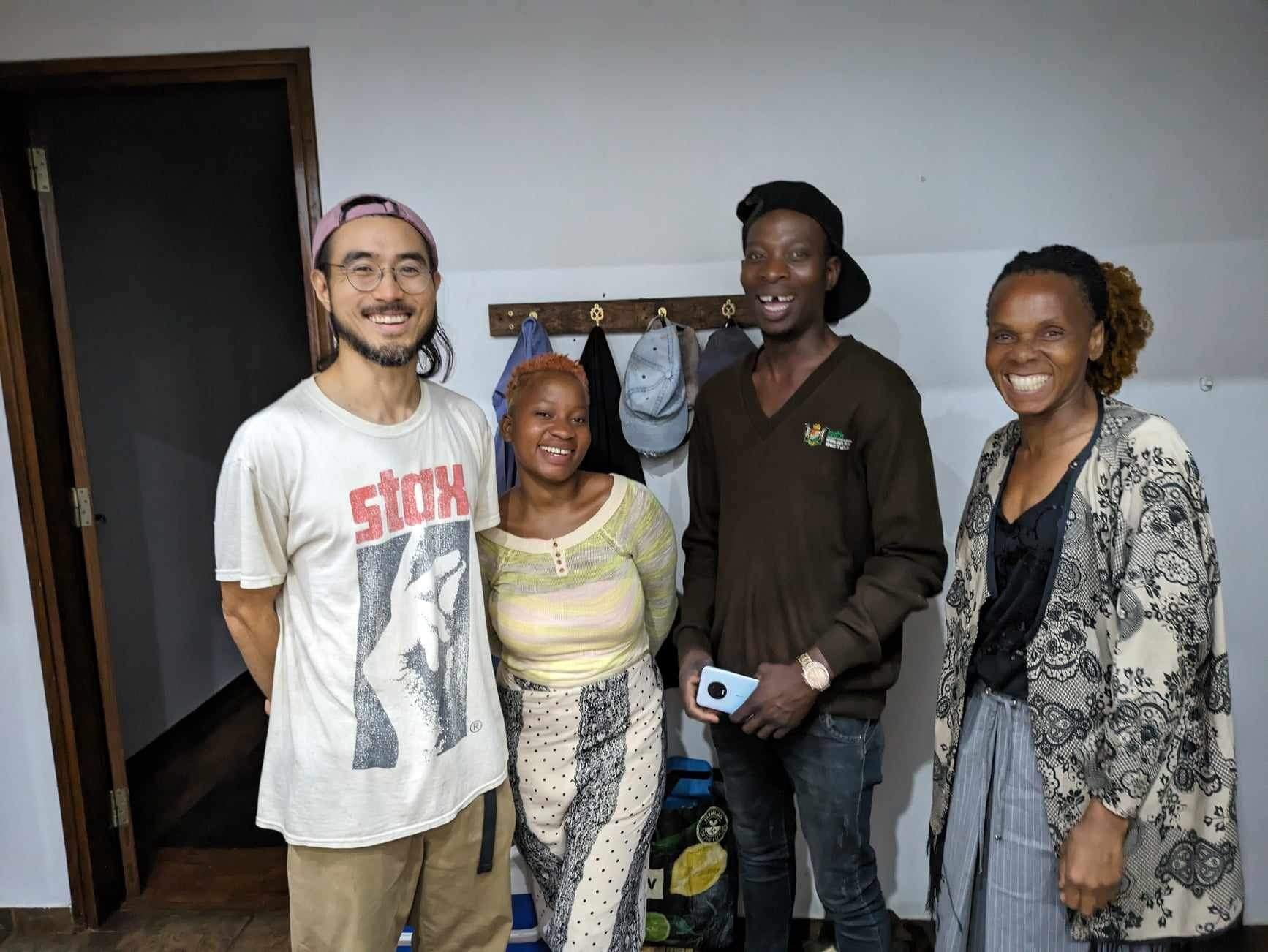(Scroll down to read in English)
人生で初めて自分で会社を作ったのはモザンビーク。
モザンビークにもっといたい、ここで何かがしたい、という思いから立ち上げた。
会社作るだけならそんなに大変じゃないしね、と色んな人に言われ、ビザも必要だったし、そんな風にスタートした。
この美しい田舎の風景に魅せられて暮らしてみることを決意した。 / Beauty of this land captivated me to live here.
実際には、ビジネスが進んでいけば進んでいくほど、いろいろ大変だったな。
モザンビークって、手続きが遅いし、謎のお金発生するし、ルールが担当者によって変わるし、いつだってその場その場でのフリースタイルバトルを強いられるので。
まあ鍛えられますわ。
日本では、ルールや手順が決まっていて、それが明記されていて、時間通りに行われて、仮に時間通りにならくても必ず連絡が来て(何なら謝られて)、費用も決まっていて。。。
それが当たり前の世界であっても、ちょっとしたことでも文句をいっていた自分がいたな。。。
そんな当たり前があるだけでも感謝感激です。
慣れって恐ろしい。
で、実際にモザンビークでの会社立ち上げやビジネスはどうだったのか、今日は振り返りの意図でも書きたい。
会社名はNyika Consultoria。事業内容は農業とカフェの運営。
まず、名前がコンサルやんけ、と。
これは会社を立ち上げる時に、弁護士から、コンサルってつけといた方が申請が通りやすいって言われて、オッケー、って言ってあまり深く考えずに決めたもの。
Nyikaはモザンビークの地元の言葉、シャンガナ語で「与える」という意味。
これは自分でネットで調べて考えた。
人に与える、コミュニティを作る、そんなイメージでこの名前に。
蛇足だがシャンガナ語でありがとうはカニマンボ。日本人にはめっちゃ覚えやすい。
これ言うとモザンビークの人は大抵笑顔でカニマンボ返してくれる、魔法の言葉。
話を戻すと、会社名に便宜上の理由からコンサルってつけたんだけど、後々自治体の人に、コンサルって言ってんのになんで農業とカフェやってねん、名前と事業内容が合わへんやんけ、と言われる。
最初はああ?こちとら手続き上の理由でつけただけで、そんな深い意味ないから!と謎にイライラしたもんですが、まあ彼らの言っていることは真っ当なわけで。
会社名を変えるのかどうかは、私の会計事務所兼法律事務所に相談して、また別途検討しようといったまま、モザンビーク出発の日を迎えた。笑
農場の一部。空芯菜、にんじん、大根。/ Once corner at the farm. Morning glory, carrots, and daikon radish.
さて、ビジネスの中身のこと。
お金は全部自腹。
借りるのとかよくわからず、自分の人生の投資だー!と思って、奥さんと自分の貯金を活用。
まずは100万円までは使ってOKにして、農業で必要な資材やカフェで必要なものを購入。
ランニングコストとして一番大きいのは家賃と給料。
モザンビークで外国人の私が店舗用スペースを借りるのはなかなか厄介そうだったのと、またお金をセーブするためにも、自分の家のキッチンと庭をカフェ用に使用。
賃貸なので、もちろん大家さんから了解をもらって。
家賃は月600ドル。ちょっと高いが、でかい庭付きの豪華な一軒家であること、仕事場としても使っているということで、まあ自分で納得して合意した。
マホガニーとモモタマナの木陰に作った自慢のDIYテーブル。カフェでも活躍した。/ My proud DIY table under mahogany and tropical almond shade which many cafe customers used.
従業員は2人。
一人当たりモザンビーク政府が定める最低賃金を払っていた。
ひとりあたり月1.7万円くらい。
日本人として、この数字を改めてこうやって文字に表すと、びっくりするぐらい安い。
ただ現地の人にとっては結構なまとまった金額、と言った感じ。
もちろんもっと給料上げれたら、、とも思うが、如何せん駆け出しの赤字会社が出せるわけもなく。
結局毎月微妙な赤字で私のポケット(という名の妻の給料)から家賃やら従業員の給料やらを払っていた。
お金を管理するためのお会計箱(=金庫)に現金収入を全て入れていたが、一時期は結構カフェも繁盛して、そこにあるお金から給与が払えたりもした。
しかし今年の7月あたりから、客足ががくりと遠のいた。
冬になり気温が落ちたのか、みんな飽きちゃったのか、単純に興味がないのか、売り上げゼロが続く日々。
そんな中、家族の不幸があってお金が必要だからと一人の従業員が給料前倒しでお金を出したり、他の従業員もなんかの理由でお金が必要だからとお金を出したりで、あっという間に会計箱は空に。
あっけないなあ。
断言することではないけど、特に私のいる田舎では、みんな貯金というものがほとんどない。
日々稼いでは、日々使っている。
公務員でさえ給料がまともに貰えていないという話みたいだし。
みんな副業、というか、稼ぐために日々いろんなことをやって、食べる物、生活用品を買う。
要するにみんないろんな仕事をしている。これって結構すごいことだ。
不安定ななか、みんな力強く生きている。
もちろん中には比較的裕福な家庭で育った人もいて、日々稼ぎが必要じゃない場合もある。
だけど大多数はさっき書いた風な感じだ。
私の従業員たちも、私の会社での仕事と給与がなければ、道で何かを売ったり、どこかで働かせてもらって一時的にお金をもらったり、家族や知人に貸し借りしながら生きていくんだろう。
ナマーシャの街のマーケット。道端や店舗でさまざまなものが売られる。/ A market in Namaacha town. Various items are sold on the street and inside shops.
私はすでに会社を閉じ、モザンビークを離れた。
そして今、私は元従業員たちと共に、一緒に始めた事業を別の場所で継続するために奮闘している。
元従業員たちの手によって、このビジネスが継続し、ナマーシャの人々にインスピレーションを与えるものになることが私の願いであり、コミットメントでもある。
これは簡単なことではない。
彼らが自立し、自分で資金を管理し、持続可能なビジネスを創造するという課題を乗り越えていくために、自ら責任者にならなくてはならない。
そしてそれが達成できれば、彼らにとって貴重な財産となる。
私は、アゼルバイジャンからこのチームをサポートし続ける。
彼らは私の家族。
私は現地の状況を見ることはできないが、なんでもコミュニケーションを通じて乗り越えていけると信じている。
このビジネスがモザンビークの人々に貢献し、喜びを与えていくような存在になることを目標に、これからもゆっくりと、そして着実に前進していく。
Mozファミリー。/ My Moz family.
Mozambique was the first country in my life where I set up my own company.
It was my wish at the time to stay in Mozambique longer and do something there.
I was told by various people that it wouldn't be that difficult to set up a company, and I also needed a visa, so I just gave it a go.
In reality, the more the business progressed, the more challenges I encontered.
Mozambique is a country where procedures are slow, mysterious charges are incurred, the rules and procedures change depending on who you deal with, and therefore you need to improvise on the spot at every turn.
Well, it's good training.
In Japan, the rules and procedures are set out, they are clearly stated, most of the time they are carried out on time, and even if they aren't carried out on time, you always get a notice (and an apology sometimes), and the costs are basically fixed...
Even in a world where this is the norm, I could be complaining about even the smallest things...
While this maybe normal in a developed country, I think its something to be thankful for.
So, today I want to reflect on my experiences setting up a company and doing business in Mozambique, looking back this past 2 years.
The company's name was Nyika Consultoria.
The businesses I ran were farming and a cafe.
You might think, why does the company name has “consulting” in it.
When I was setting up the company, the lawyer told me that it would be easier to get the application approved if the company name has “consultoria” in it, so I said “OK”without thinking too much.
Nyika is a local word in Mozambique, Xangana, meaning “to give.”
I came up with this myself after doing some research online.
I wanted to create a company that thrives through giving to others and building a community.
Fun fact, the word for “thank you” in Xangana is “kanimambo”. It's really easy for Japanese people to remember, since it consists of words “kani(crab)”and “mambo(sunfish)” which are pronounced similarly in our language.
Kanimambo is a magic word in Mozambique, where most of the time, local people would smile and reply with another kanimambo.
Getting back to the story, while I added the word “consulting” to the company name for the ease of application, later, I was asked by local officials “why are you doing farming and cafe business while you say you're a consulting company? The name and the actual activities don't match!”
Initially, I was puzzled and annoyed, thinking “I only added it for procedural reasons, it doesn't have any deeper meaning!” But after a while, I realised that what they were saying was perfectly reasonable.
I consulted about this with my accounting/legal firm, whether or not to change the company name, but before we reached any conclusion and any action, my departure day from Mozambique arrived…
Now, about the content of the business…
All expenses were paid from my own and my family’s savings.
I wasn’t confident and clear about receiving any external funding , so I considered this as an investment in my life and I used my own savings.
My wife and I decided that we would spend up to 1 million yen, to buy required materials for the farm and cafe.
The biggest running costs were the rent and staff salaries.
It seemed awfully complicated for a foreigner like me to rent a space for the cafe in Mozambique, and also for saving money, I decided to use the kitchen and garden of my own house to open the café.
The landlord kindly accepted my idea.
The rent was $600 a month. It was a bit expensive, but considering that it was a big, well furnished house with a beautiful spacious garden, and that I would be using it as a workplace, I was satisfied with the deal.
In my company, I hired two local employees.
I was paying the minimum wage set by the Mozambican government for each person.
About 17,000 yen per person per month.
As a Japanese person, when I see this figure written down like this, I'm surprised how small it is.
But for the locals, especially in my neighbourhood, it's a fairly substantial amount of money.
I wished I could pay them more, but there was no way a company that just started with zero sales could afford.
In the end, I was paying the rent and most of the employees' salaries out of my own pocket (i.e. my family savings) with a slight deficit every month.
All our sales went into the cash box (i.e. the safe) for managing our money.
For a while, the café was doing quite well and at one point I was even able to pay the salaries out of the money there.
However, from around July this year, the number of customers suddenly dropped.
Whether it was because the temperature dropped with the arrival of winter, or whether people had simply lost interest, sales continued to be zero, day to day.
Amidst this, one employee asked for her salary in advance because she needed the money due to a family issue. Then another employee also asked for an early salary in for other reasons, and in no time, the cash box was empty.
It was a bit sad to see the money to be gone so quickly.
I'm not saying this for sure, but especially in the countryside in Mozambique, people generally don't save up money.
They earn money every day and spend it every day.
I heard that public workers were not getting paid properly.
Everyone has a second job, or rather, they do various things every day to earn money to buy food and other necessities.
It is quite amazing how one person could be doing so many different jobs.
Despite the instability in their lives, people are powerfully living day to day.
Of course, there are also people who grew up in relatively wealthy families, and in such cases they don't need to earn money every day.
But the majority are like the ones I just described above.
My employees would probably be selling things on the street or getting temporary work somewhere else, or borrowing from family and friends if it wasn't for the work and pay at my company.
I have already closed my company and left Mozambique.
And now, I am working with my former employees to continue the business that we started together, in a different setting.
It is my wish, and also a commitment, for the business to continue and become an inspiration to people in Namaacha, by the hands of my former employees.
It is no easy task.
They need to be independent and be responsible for overcoming the challenges of managing their own money and creating their own sustainable business.
If they can achieve that, that would become their precious asset.
From Azerbaijan, I will continue to provide support to my team.
They are my family.
Although I can't see the situation on the ground, I’m sure we can overcome hurdles through communication.
We will continue to move forward, slowly but surely, with the aim of having the business contributing and bringing joy to the people in Mozambique.




